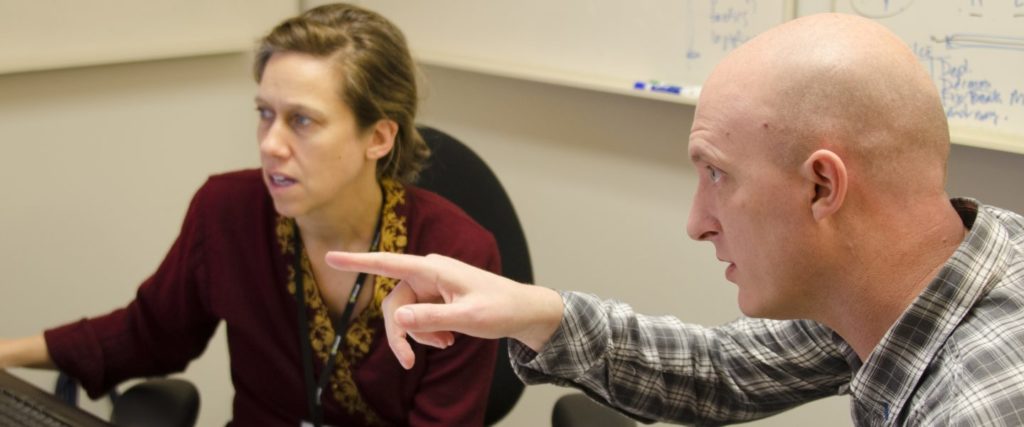Former Marine finds a career — and a cause — at Microsoft

When someone asks Gary Peltzer if they should join the Marine Corps, his answer is always the same: “If you’re not looking to build an empire by yourself; if you’re looking to establish a good basis of teamwork, leadership and working well with others to accomplish a mission, then the Marine Corps is for you.”
He says that’s the most important lesson he learned in his 12 years in the Marine Corps: How to work together as a team. “You pull together the resources that are available to you, you make do with what you’ve got, and you accomplish the mission as a team,” Peltzer says. “That serves me pretty well on the outside, in that you’re not always given the full pieces of the puzzle; sometimes you have to go make pieces.”
Peltzer was a sergeant in the Marine Corps from 1996 to 2008, and then he spent another five years as a civil service worker, which meant he was still working for the Marine Corps — he just took off the uniform and put on a suit and tie. Peltzer spent the majority of that time working out of Okinawa, Japan, honing his skills in tactical networking — everything from server administration to customer service to satellite communications. When he decided to pursue a career in the civilian world, Peltzer went to put together a resume and realized it was the first time he’d ever written one.
“I didn’t really know how,” he says. “I was trying to translate a lot of what I’d done in the military — trying to find corporate terms for things like bivouacking. Putting all that onto a couple sheets of paper and doing it effectively was tough, so I reached out to a lot of folks who had already transitioned and asked for advice on my job search.”
Those folks suggested he apply for a job at Microsoft, a company he’d worked with during his time in Okinawa. Peltzer applied for two IT operations positions; his global perspective and focus on accomplishing the mission at hand sealed the deal, and he was hired as a program manager in the Global Datacenter group. Peltzer’s transition from the military to the civilian world may have ended positively, but the process wasn’t easy.
“There’s a lot of stress as you transition into the vast unknown of the civilian world,” he says. “There was no mentor, no one I could reach out to and go, ‘Hey, Mr. Civilian Person, help me understand what day one is going to be like?’ or ‘What’s a day in the life of somebody who works in corporate America?’ I had no idea. So when I was given the opportunity to help smooth that transition out and become a mentor for the service members in Microsoft Software & Systems Academy (MSSA), I jumped at the chance.”
“It wasn’t that long before becoming a mentor that I had transitioned, and it was a pretty miserable experience for me,” Peltzer says. “So anything I could do to help ease that pain for fellow Marines, or airmen or whomever, it just made sense. I’ve put a lot of time and energy into the program — more than 600 hours — and not a minute of it has been wasted, in my opinion. Regardless if the candidates get hired or not, it’s a transition program that’s going to benefit service members in the long term. I love what Microsoft Military Affairs is doing, and I’ll be a part of this program as long as they’ll have me.”
He says the closer the MSSA students get to graduation, the more questions they have — questions most nonmilitary people wouldn’t really think about: What do I wear to work? How do I get lunch? Little things that they didn’t have to worry about in the military. Peltzer says making himself available to answer those questions helps lower students’ stress levels so they can focus on landing a job.
“Something I share with the service members I mentor is that there are more parallels than differences to be drawn between a large corporation like Microsoft and any of the military branches,” he says. “The assumption is that the speed of business is always a million times faster in corporate America than it is in the government, but I think there’s some similarities in any institution the size of Microsoft or the government.”
At Microsoft, Peltzer says, datacenters are growing at an astronomical pace — his team is building new ones every day, it’s leasing new ones every day, it’s hiring people to work in them every day. That much change in that short amount of time can be tackled in a number of ways, but what Peltzer says he saw in the military — and what he sees now at Microsoft — is that there’s a very planned and deliberate approach to everything.
“It’s not just speed, speed, speed,” Peltzer says, “it’s speed and thought: Why are we doing what we’re doing? Does this make the most sense? How do we accomplish this successfully? Those are all questions we ask in the military. We may do it in a sand pit while we’re attacking a hill, and at Microsoft we’ll do it around a white board, but it’s essentially the same thing. It’s deliberate planning around the end state of the mission. It’s those parallels that make service members such a great fit at companies like Microsoft.”
